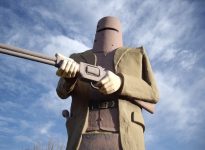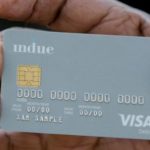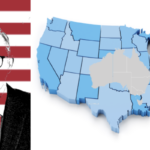Bushrangers: Aussie Legends or Vile Criminals?

Bushrangers, once a terrifying part of the Australian landscape, now only occupy pages of in history books. Yet some of these early Australian criminals were fascinating people in their own right.
Early bushrangers were called ‘bolters’ because they were escaped convicts who ‘bolted’ to the bush to evade capture. Later on, the lifestyle attracted men for a variety of reasons: retaliation, a longing for adventure, easy riches or even simply boredom.
Let’s take a look at a few of the more famous bushrangers from our history.
Andrew “Captain Moonlite” Scott (1842-1880)
Early in his life, Andrew Scott followed in the footsteps of his father and brother, a clergyman and priest respectively. His job was to travel around Victorian settlements reading prayers and conducting services, but he soon lost interest and decided to rob a bank instead.
One night, he arrived at the home of a bank manager wearing a mask, stating his intention to rob the bank. But the bank manager recognised his voice and asked whether it was a suitable joke for a clergyman. Scott assured him that it was no joke, threatening to shoot. He then took the manager to the bank and made him sign the following note: “Captain Moonlite has stuck me up and robbed a bank”, then made off with £1000. Scott left the note in a school for the teacher to find in the morning, and the poor bank manager spent the night in the bank, bound and gagged until he was discovered the next morning.
Unfortunately for both the bank manager and schoolmaster, police thought they had staged the robbery. Scott was even called as a witness against them, but absconded to Sydney before the trial took place where he spent up big, buying a luxury yacht and other goodies. This was the beginning of a long career of crime – which included a spectacular prison escape, many more robberies and murder. He was eventually hung for his crimes in 1880, at the age of 37.
Daniel Morgan (1830 – 1865)
Morgan was one of the most bloodthirsty bushrangers Australia has seen. He was so notorious he even attracted an impersonator.
Morgan was behind many robberies and murders. But it seemed that despite his nickname of ‘Mad Dan’, he had a soft spot for employees. Morgan delighted in humiliating tough bosses, but during raids, he would insist that employees be fed, and even forced one employer to write generous cheques to his workers.
Morgan was ultimately killed during a raid – shot in the back by a man on a neighbouring property. His trademark curly locks and beard were cut off as souvenirs.
Ben Hall (1837 – 1865)
Born in Australia to convict parents, Ben Hall was originally a stockman. After being charged with several robberies, Hall’s house was burnt down, a move that led him to join a gang of bushrangers.
With the gang owning far better horses (usually stolen), the ill-equipped police force was no match for Hall and his men. On a single day, the gang robbed 60 travellers making their way along the Sydney to Melbourne road. Hall was eventually shot dead just months after Victoria introduced legislation allowing anyone to shoot outlaws on sight.
But Hall’s funeral was attended by many who remembered his courage, sense of humour, courtesy to women and hatred of informers.
Ned Kelly (1854 – 1880)
One of the last and most famous of Australian bushrangers was the son of a convict sent out to Australia for stealing two pigs.
Kelly was first in trouble with the law at the age of 15, when he was imprisoned for six months. Several other members of his family also did time for various offences, but the real trouble started when a notoriously unreliable police trooper came to arrest Ned’s brother Dan. While there, he claimed Ned shot at him, although this was never proved. Ned and Dan went into hiding. The Kelly gang cunningly evaded capture for some time, despite the Victorian government offering a sum of £500 for them, dead or alive.
After hold-ups, bank robberies and murders, the reward increased to £2000 per head. Ned and his gang’s demise came in one final shoot-off with police. Despite wearing metal armour, Ned was shot in the leg and captured. He was tried and found guilty of murdering a police officer.
He was sentenced to death by hanging, and his last words are said to have been: “such is life.”






